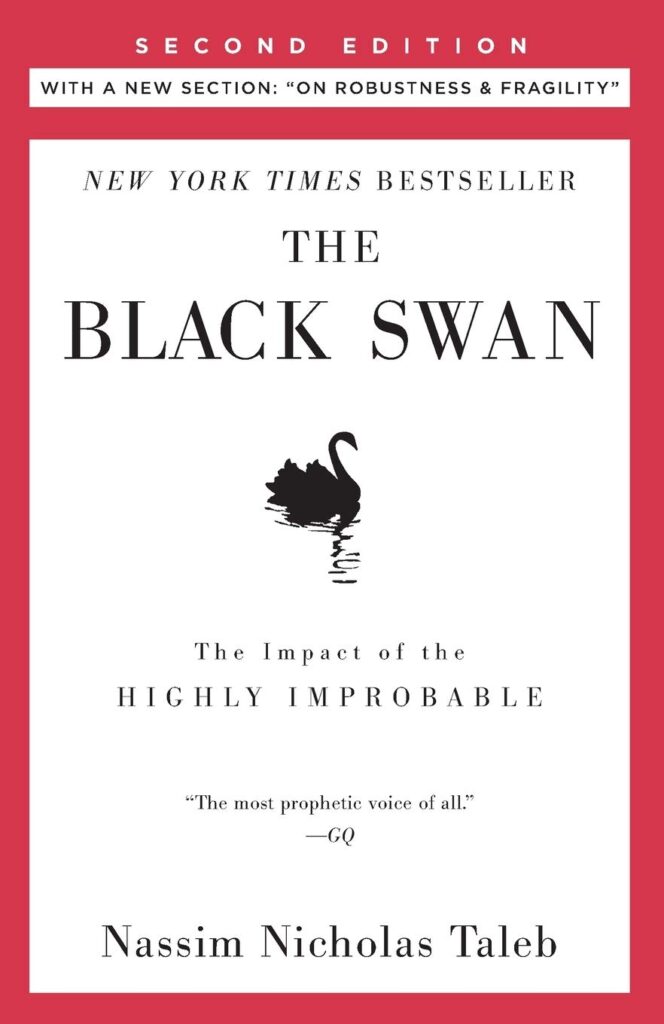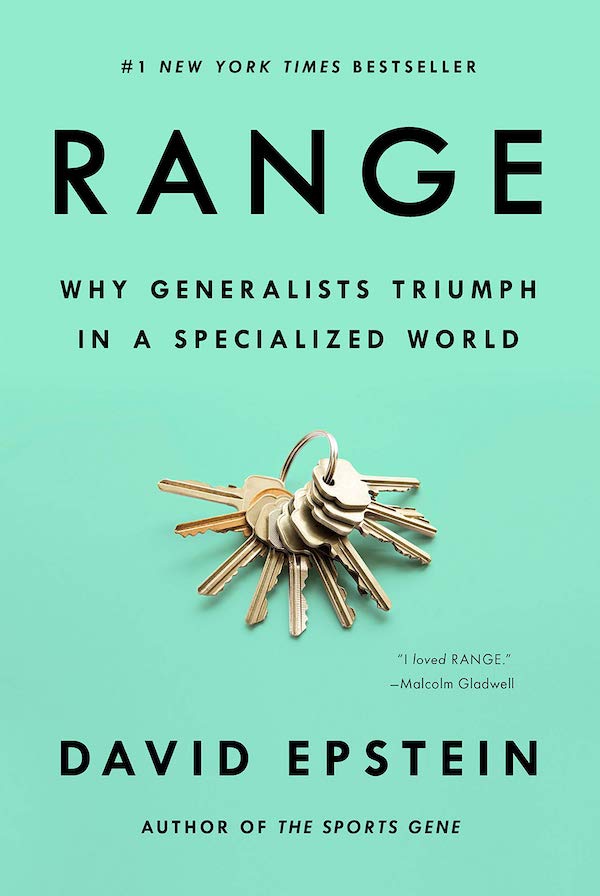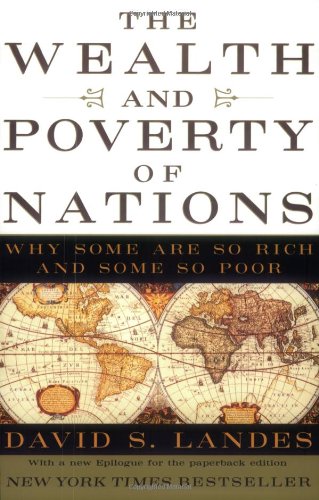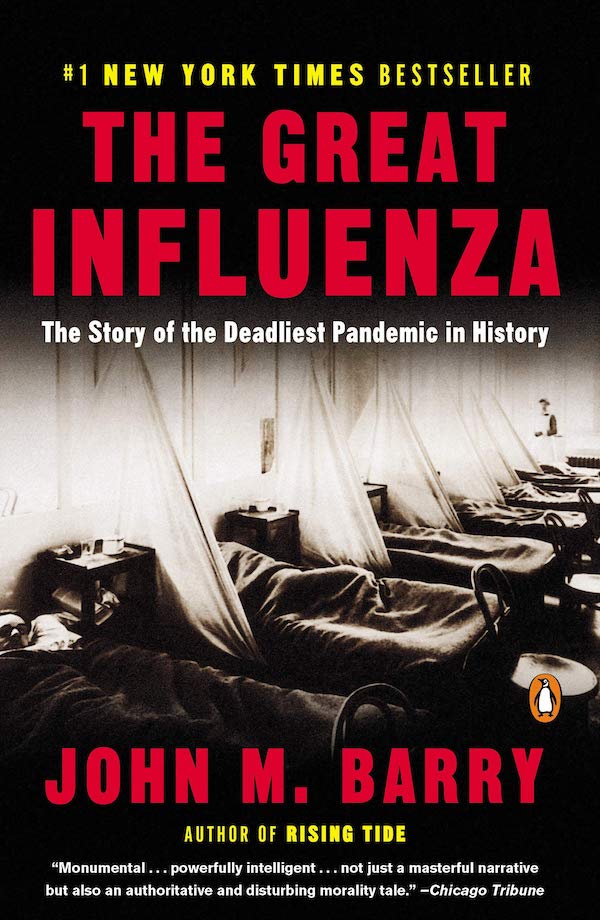I’ve always been a big reader, and this year was my most productive yet, finishing a total of 101 books during the year of lockdowns. I had several lists of books that were on my goals list this year that I got a good chunk of my reading from, including finishing the biographies of every US president, reading the recommended list from Poor Charlie’s Almanac, 10 more books from this list of 100, and rereading several of my favorites from prior years. I set the goal at the beginning of the year of reading 12,000,000 total words, and came just shy by getting through 11,531,794. Topics, as usual, ranged as far and wide as you can go within non-fiction.
Below are the best and most useful books I read this year. If you want to see everything I’m reading, you can follow me on Goodreads.
Black Swan
 What a year to read Black Swan. Although the book’s author doesn’t think the Covid-19 pandemic truly qualifies as a Black Swan, a technicality of a point that I would disagree with, there is no denying that for the vast majority of the world our current state of affairs was entirely unpredictable. A Black Swan, for those who aren’t familiar with the term, describes an event that was completely unpredictable and has massive consequences. It gets its name from the fact that until 1697, all the swans that had ever been seen were white. Therefore, no such thing as a black swan existed. However, in that year black swans were discovered in Australia, completely changing the definition of what a swan is.
What a year to read Black Swan. Although the book’s author doesn’t think the Covid-19 pandemic truly qualifies as a Black Swan, a technicality of a point that I would disagree with, there is no denying that for the vast majority of the world our current state of affairs was entirely unpredictable. A Black Swan, for those who aren’t familiar with the term, describes an event that was completely unpredictable and has massive consequences. It gets its name from the fact that until 1697, all the swans that had ever been seen were white. Therefore, no such thing as a black swan existed. However, in that year black swans were discovered in Australia, completely changing the definition of what a swan is.
Both of Taleb’s books that I’ve read have been excellent and extremely thought provoking. They take time to digest simply because they spawn so many thoughts. He does however fall victim to some of his own logic when talking about the most recent Black Swans (COVID and the mortgage bubble). He himself claims to have predicted them, but that doesn’t change the fact that nearly everyone else didn’t think they were possible and were completely blindsided. As he points out early in the book, Black Swans are a matter of perspective. To the turkey, getting slaughtered on Thanksgiving is a Black Swan, but to the butcher it is not.
Some quick favorite insights from this book:
- Successions of anecdotes selected to fit a story do not constitute evidence. Anyone looking for confirmation will find enough of it to deceive himself, and no doubt his peers.
- People confuse “no evidence of black swans” with “evidence of no black swans”.
- Professions that deal with the future and base their studies on the non repeatable past have an expert problem.We have a natural tendency to listen to experts, even in fields where there may be no true experts. Economics is the best example.
- If you get published in the New Yorker because the color of your letterhead attracted a daydreaming editor, the resultant reward can follow you for life. Outcomes in creative fields don’t follow a bell curve distribution.
- It is contagion that determines the fate of a theory in social science, not it’s validity. This is why so many Nobel in Economics winners have later gone bust.
- Saying the maps we had were better than no maps at all makes no sense. If your pilot had a map to Atlanta but you were headed to NYC, that is a bad situation. You would rather take alternative transportation or just stay home. By analogy economic formulas and predictions are worthless.
- In regards to the saying “All models are wrong, but some are useful.” Maybe true, but the real problem is that some are harmful, potentially very harmful.
Range
 I’ve read a lot of books about how to be successful over the years. One of the most common themes throughout several dozen of them has been the idea of specialization and becoming an expert in a narrow field. The 10,000 hour rule of dedicated practice to become a master at something is the most prevalent prescription for such a path.
I’ve read a lot of books about how to be successful over the years. One of the most common themes throughout several dozen of them has been the idea of specialization and becoming an expert in a narrow field. The 10,000 hour rule of dedicated practice to become a master at something is the most prevalent prescription for such a path.
Range, by David Epstein, flies in the face of those ideas. Epstein makes the argument that having a diverse knowledge base is actually better for most people than becoming hyper specialized. He gives many examples in the book of how this works, even from the athletic disciplines. This was very surprising, since conventional wisdom suggests that the 10,000 hour rule is most true in sports. Roger Federer playing a wide variety of sports throughout his youth is a convincing counterexample made in the book.
The book also hits on one of the core themes of Black Swan. Experts in their fields are actually the ones most likely to be wrong. Finance and economics are of course the best examples of this, but there are many others. Biologists decades ago predicted that human beings would run out of food and go extinct very quickly. Obviously that hasn’t happened. Expertise also can lead to blindness of unexpected problems, like in NASA before the Challenger explosion.
It’s possible that I just liked this book because it provides a convenient argument for becoming a generalist, which is how I would perceive myself professionally. I’m not blind to my own self interest in this book being right. Putting that aside though, it was still a fascinating read that is especially interesting if you’ve read books that argue for specialization.
TR Series
 This year I finished the project I started in 2019 of reading a biography of every US President. There were many exceptionally written books about our nation’s leaders that provided wonderful insights into all aspects of life. I thought it would be hard to choose a single one to include in this list, but really it wasn’t. The series I read on Theodore Roosevelt was exceptional in every way, blowing away the others.
This year I finished the project I started in 2019 of reading a biography of every US President. There were many exceptionally written books about our nation’s leaders that provided wonderful insights into all aspects of life. I thought it would be hard to choose a single one to include in this list, but really it wasn’t. The series I read on Theodore Roosevelt was exceptional in every way, blowing away the others.
It helps that the subject of this series is probably our most interesting president. TR started out life as an asthmatic, sickly child. Quickly he learned how to build his body, achieving greatness in physical fitness as evidenced throughout his incredible journeys his entire life, which include ranching in the west, hunting in Africa, exploring a previously uncharted river in South America, and leading the charge up San Juan hill and becoming a war hero in the process. He read an entire book every day on average, and wrote 18 of them himself. Oh, and along the way he became a leader in New York’s legislature, a police board commissioner in NYC, Assistant Secretary of the Navy, Governor of New York, and then Vice President of the United States. Only a few short months after taking that last office, President McKinley’s assassination thrust him into power as our youngest ever president. Despite his youth he racked up an incredible array of accomplishments, including winning the Nobel Peace Prize for negotiating international treaties that stopped a major war, fighting the trusts and monopolies of that era, and being our foremost conservationist in developing the roots of our national park system.
Edmund Morris captured the incredible life of TR in three parts, the first examining his early life and rise to the presidency, the second the presidency itself, and the third his remarkable life after leaving office. The first book won the Pulitzer Prize, and the whole series is among the best writing I’ve ever read.
Wealth and Poverty of Nations
 Reading and learning about history was a theme throughout my year, and in December I read a book that broke the traditional mold of a historical work. David Landes’ book explores how and why some nations are rich today and others are poor. Working with a combination of traditional economic theories and some unique ideas of his own, Landes spans the entirety of human history and shows the primary reasons wealth and prosperity is concentrated in the areas it is today.
Reading and learning about history was a theme throughout my year, and in December I read a book that broke the traditional mold of a historical work. David Landes’ book explores how and why some nations are rich today and others are poor. Working with a combination of traditional economic theories and some unique ideas of his own, Landes spans the entirety of human history and shows the primary reasons wealth and prosperity is concentrated in the areas it is today.
There were a lot of great takeaways from this book, and some great overlap with another great book I read this year (Guns, Germs and Steel by Jared Diamond). Two central themes really resonated with me:
- Quick and easy wealth inevitably leads to complacency and laziness, which in turn leads to decline. The best example of this was the difference between Spain and Britain during the early colonial days after the discovery of the Americas. Spain’s colonies in south and central America were rich in gold and immediately they were able to benefit materially from that resource. Britain by comparison settled parts of America that were primarily used for agriculture. It took some time, but sure enough Britain would easily pass a struggling Spain in prosperity thanks to the continual production of their colonies.
- Liberty and freedom inevitably outperform their alternatives. Great examples from this book include the many nations who early on banned printing presses in order to prevent their citizens from learning and having their own ideas. Those nations who did so very rapidly fell behind in terms of technological development as the spread of ideas ceased. Also, every nation that tried some form of centrally planned economy over the centuries, particularly communist and socialist countries, have dramatically underperformed their capitalist counterparts. Obviously this can be taken too far, as without wise governance capitalist societies tend to take wrong turns. But there is no denying the historical triumphs of those who embrace freedom.
This book stirred an interesting thought for me about our current state of affairs in the United States. On the one hand, my generation of Americans was born into immense wealth, richer by default than any generation before us. Even the poorest among us live better lives than nobility did just a few centuries ago. On the other, we are the most free and capitalist driven country in the world. Will our lucky births lead to complacency and decline? Or will opportunity drive us to work hard so we can prosper in the long term? Future historians will be the lucky ones that get to answer this question.
The Great Influenza
 This book was on a lot of people’s lists this year, no surprise given it is the authoritative account of the 1918 Spanish Flu pandemic, the only really dramatic pandemic we had for the 100ish years before COVID-19 hit. This book actually started before the rise of the Spanish Flu, describing how the medical industry progressed rapidly to scientific and effective methodologies after millenia of bloodletting and myriad other ways that doctors killed their patients. It then told the story of the many scientists and doctors who worked to fight this awful pandemic that was killing young, healthy individuals at unprecedented rates.
This book was on a lot of people’s lists this year, no surprise given it is the authoritative account of the 1918 Spanish Flu pandemic, the only really dramatic pandemic we had for the 100ish years before COVID-19 hit. This book actually started before the rise of the Spanish Flu, describing how the medical industry progressed rapidly to scientific and effective methodologies after millenia of bloodletting and myriad other ways that doctors killed their patients. It then told the story of the many scientists and doctors who worked to fight this awful pandemic that was killing young, healthy individuals at unprecedented rates.
Of course, none of them would truly succeed. Two things eventually stopped the Spanish Flu: It ran out of hosts (herd immunity) and it mutated closer to a normal, less lethal influenza virus. In its wake it left about half a million Americans dead (equivalent to 1.7 million today), and was particularly devastating among military encampments.
It was very interesting reading this book, which was written in 2004, in light of what is happening today. The government’s reaction to COVID-19, particularly at the federal level, has been strongly criticized. 1918, on the other hand, had essentially NO reaction from the feds, with President Wilson focused entirely on WWI and then his precious League of Nations. However, people seemed to respond much more amicably at the individual and community level than we have to COVID-19. Many of the same measures used to fight COVID were used back then (masks, lockdowns, curfews, etc). It’s hard to say for sure whether or not compliance was better back then, but based on the evidence in this book it seems as though it probably was by at least a small amount. There was certainly more panic about the virus then compared to now, which isn’t entirely surprising since it wasn’t as well understood as COVID is and was also far deadlier.
Another very interesting part of this book was its predictions about the next pandemic. Although it wasn’t an influenza virus as was thought most likely, the supply chain problems we have experienced, and continue to experience, were very accurately predicted in this book. The problems that we’ve had have made me completely throw out so-called “just in time” supply chain theories in my own businesses and in what I would ever recommend to others. One little Black Swan later and the whole system was upended, resulting in no toilet paper on store shelves, respirator shortages, and a host of other problems. My company Upland Optics has been sold out of binoculars for over two weeks because we have had a large shipment stuck with Fedex in California for almost two months. They have been unable to ship it out due to government regulations and unprecedented shipping volumes, and won’t even allow us to drive down there to pick it up ourselves. This is happening 10 months after lockdowns first started happening, and makes me seriously question some aspects of our supply chain systems.
Honorable Mentions:
Truman – A Pulitzer winner and possibly the longest single book I’ve ever read, this look at one of our more interesting Presidents was incredible. Truman served during a critical part of our nation’s history and though he wasn’t perfect and often was disliked, he overall did great.
Triumphs of Experience – The Harvard-Grant study is the longest running longitudinal study ever done. It followed a group of students at Harvard throughout their entire lives, specifically looking at what would cause them to be happy and successful. This book covers the core findings of the study. It is full of wisdom that should be obvious but isn’t always appreciated, like just how destructive alcohol is and the importance of strong relationships of all types.
Leadership in Turbulent Times – After finishing the presidential biographies, I couldn’t resist reading this bestselling book from Doris Kearns Goodwin about presidential leadership. It specifically looked at FDR, TR, Lincoln, and Johnson’s foreign policy. It makes a great study for someone interested in political leadership or American history, as it the culmination of Goodwin’s storied career studying these leaders.
Profiles in Courage – It may be questionable whether JFK’s pre-presidential Pulitzer winner was truly written by JFK himself, but regardless of its authorship it is a great book. It covers instances where United States Senators sacrificed themselves for a cause that was critical to our nation.
The New Jim Crow – Another book that was particularly valuable in light of 2020’s events, this book provides some scary statistics and makes shocking claims about our criminal justice system. I don’t necessarily agree with all of its conclusions, particularly about how intentionally a so-called “system of control” was built. But I definitely agree that the War on Drugs has had some seriously negative side effects that have disproportionately affected racial minorities, and I don’t think anyone could make an effective counterargument.